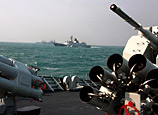
When China joined the World Trade Organization in 2001, one of the frequently mentioned benefits was that China could get a better export conditions through using world trade rules to reduce disputes.
But this is far from the case.
By 2011, China was the most frequently targeted economy of anti-dumping investigations for 17 successive years. The country has been the subject of 52 anti-subsidy investigations since 2004, just one fewer than India's total for the past 17 years.
In addition, China is also a familiar defendant at the WTO Dispute Settlement Body - appearing 29 times since its accession to the organization, only behind the United States and the European Union by that measurement.
Investments by Chinese businesses, especially State-owned ones, have been frequently blocked over "national security" concerns in developed markets such as the US as well as in developing economies in Africa and Latin America.
What are the real reasons for this trade friction?
We first need to be clear that this situation has not fundamentally affected China's trade and economic growth.
Its exports increased almost five times from $325.6 billion in 2002 to $1.9 trillion in 2011, which showed that trade disputes did not have a significant effect on the country's growing foreign trade.
It is unnecessary to exaggerate the effects of trade disputes and obsure our judgment of the global and domestic situation.
The current rules, established in the early 1990s, result from then common economic patterns and ideas, and favor developed economies. China had to accept the rules as a rising exporter and was thus placed in an unfavorable position from the very outset.

















 You may not leave a city because of cold but it may reduce your feeling of happiness.
You may not leave a city because of cold but it may reduce your feeling of happiness.


![]()
